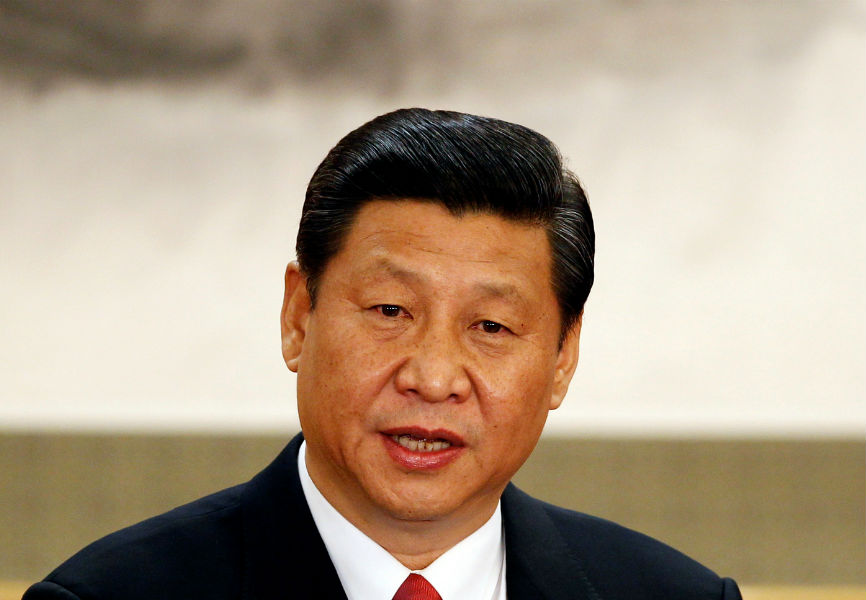Earlier this year, Apple CEO Tim Cook
published a letter to Apple investors warning that the greater-than-expected economic deceleration in China would lead to end-of-year revenue shortfalls. Apple's letter introduced the rest of the world to a situation that had been unfolding in China's domestic economy since the middle of 2018: broad economic weakness across private industries and consumers, driven by a domestic financial crackdown and ongoing US-China trade tensions.
Over the past decade, each period of Chinese economic weakness has been marked by a government-led stimulus program that has buoyed the domestic economy and international markets, as infrastructure and real estate investment sucked up
commodities from the rest of the world. And households, wealthy from rapidly rising housing prices and urban incomes, have driven growing sales in global luxury brands, from Apple to BMW.
As a result, news of a Chinese slowdown triggered expectations of subsequent stimulus and therefore a boost to global markets. But officials are still dealing with the hangovers from 2009 and 2015, the past two periods of government intervention. According to the Bank for International Settlements, China's debt-to-GDP ratio at the end of 2008 was a reasonable 142 percent. By the beginning of 2016 it had jumped to 244 percent—an increase of
more than 100 percentage points in less than a decade. This
rate of credit expansion has no clear precedents in modern history.
It also led to dangerous excesses. Local governments invested in
vanity projects in addition to necessary infrastructure investments. Easy credit drove a real estate bubble that attracted household and corporate speculators; even China's state-owned enterprises played a role, investing in
new housing developments rather than focusing on their less-profitable core industries. Speculation drove risks, as investors hid their transactions away from regulators' oversight.
China's president, Xi Jinping, can no longer rely on the same tools to dig the economy out of this slowdown, however. Excessive debt and financial risk issues aside, policymakers in Beijing do not want to rely on these tools. Credit-fueled infrastructure and real estate investment, even when focused on productive investments, no longer make sense for the Chinese economy. As China's economy reduces its reliance on heavy industry and instead becomes more services-focused, traditional methods of stimulus would drive resources away from the industries
that the country is developing to guide the next 20 years of economic growth, such as semiconductors, electric vehicles, and advanced manufacturing.
That is not to say that Beijing will simply let the economy land where it may. But this intervention will be both smaller and targeted differently than past eras. Beijing is allowing local governments to issue bonds to support infrastructure projects, but not enough to accelerate growth. The central bank is increasing liquidity for banks but forcing them to drive loans to the private sector, a less profitable and more unstable client than state-owned enterprises. Maintaining momentum while preventing the economy from going off the side of the road is the main goal.
The second key tool is clearing out roadblocks for private sector activity and investment. With enough credit in the system, economic activity could power through regulatory uncertainty, even as it accumulated damage from the inefficiencies and negative spillovers. But with less credit in the system, companies need a clearer path to invest. The result has been a loosening of burdens; a recent government meeting announced a cut to businesses' value-added tax, as well as a reduction on social security contributions by corporations. Other marginal adjustments have eased licensing requirements, making bond issuance safer for banks and cheaper for corporations.
The goal is to free up private-sector cash so companies have the capacity to make their own investment decisions. Tax and regulatory cuts do not directly raise debt-to-GDP levels, and moving investment decisions from governments to the private sector should increase the return on investment of stimulus efforts. Consumers will also enjoy continued subsidies on purchases of electric vehicles, a policy that supports a growing domestic industry and the ever-more-important urban consumers.
If this all sounds familiar, it should. China's stimulus is slowly becoming more similar to the United States and other developed economies, reflecting the fact that China itself is an increasingly middle-class society with an economy led by services and consumption. The United States should benefit from this shift. US firms tend to export more services and consumer items to China than the commodities and capital equipment that have benefited from past stimulus booms. Of course, settling the trade war will be critical to maximizing these benefits.
But this mix-and-match approach—a few percentage points here, a few there—will not support either the domestic or international economy as quickly as before. And the channels will be different as well. Commodities exporters will not see the same boost as in previous periods. Countries that have relied on
exporting their manufactured products to China—Germany, Japan, and South Korea, among others—will not see a boost to their orders. Countries and firms waiting with bated breath for China to ride to the rescue will have to wait a little longer, if it comes at all. And the global economy may be left with dwindling Chinese demand—and without a backup plan.
This article was originally published on TheHill.com.

 Chinese President Xi Jinping. REUTERS.
Chinese President Xi Jinping. REUTERS.
